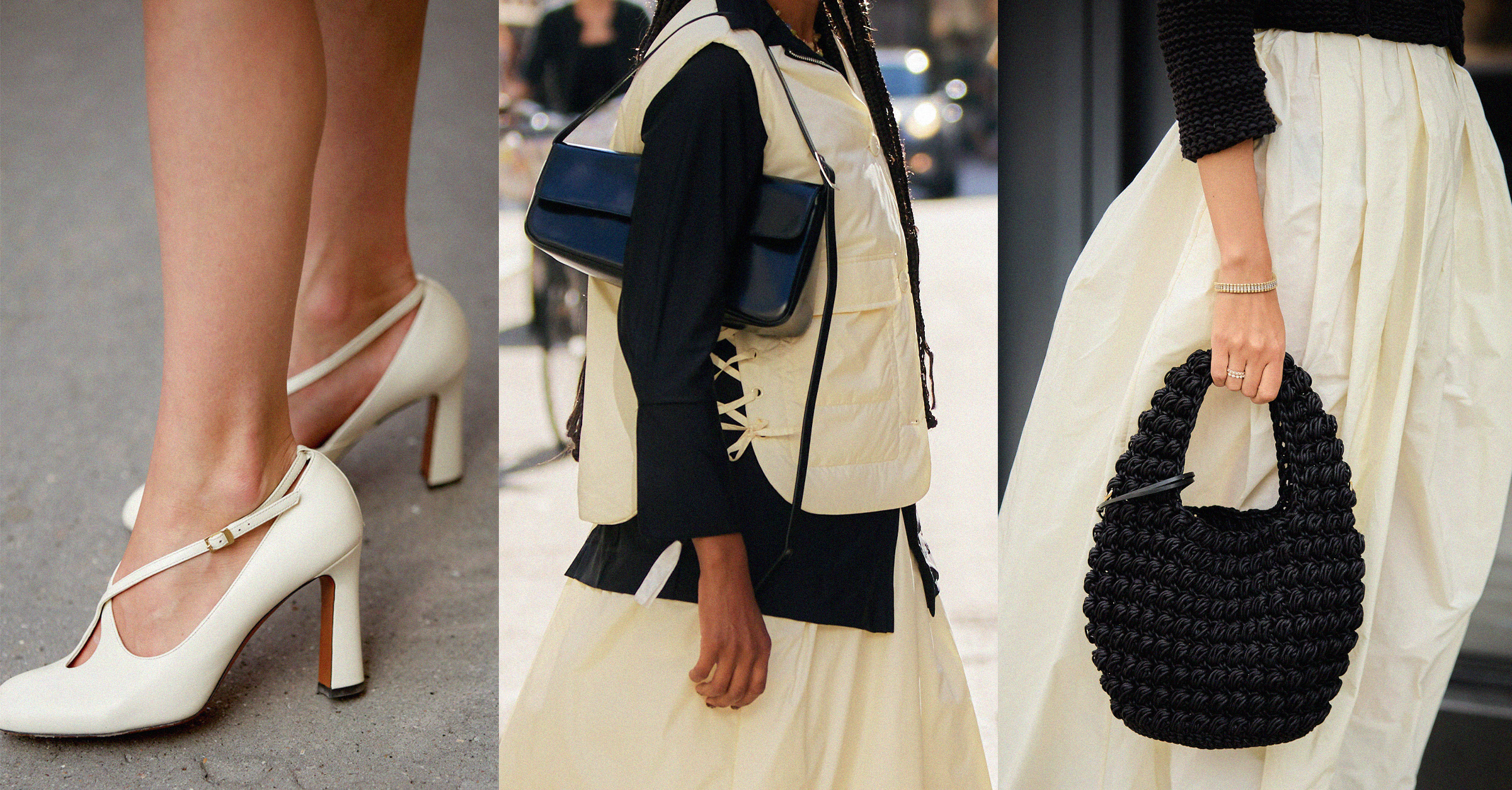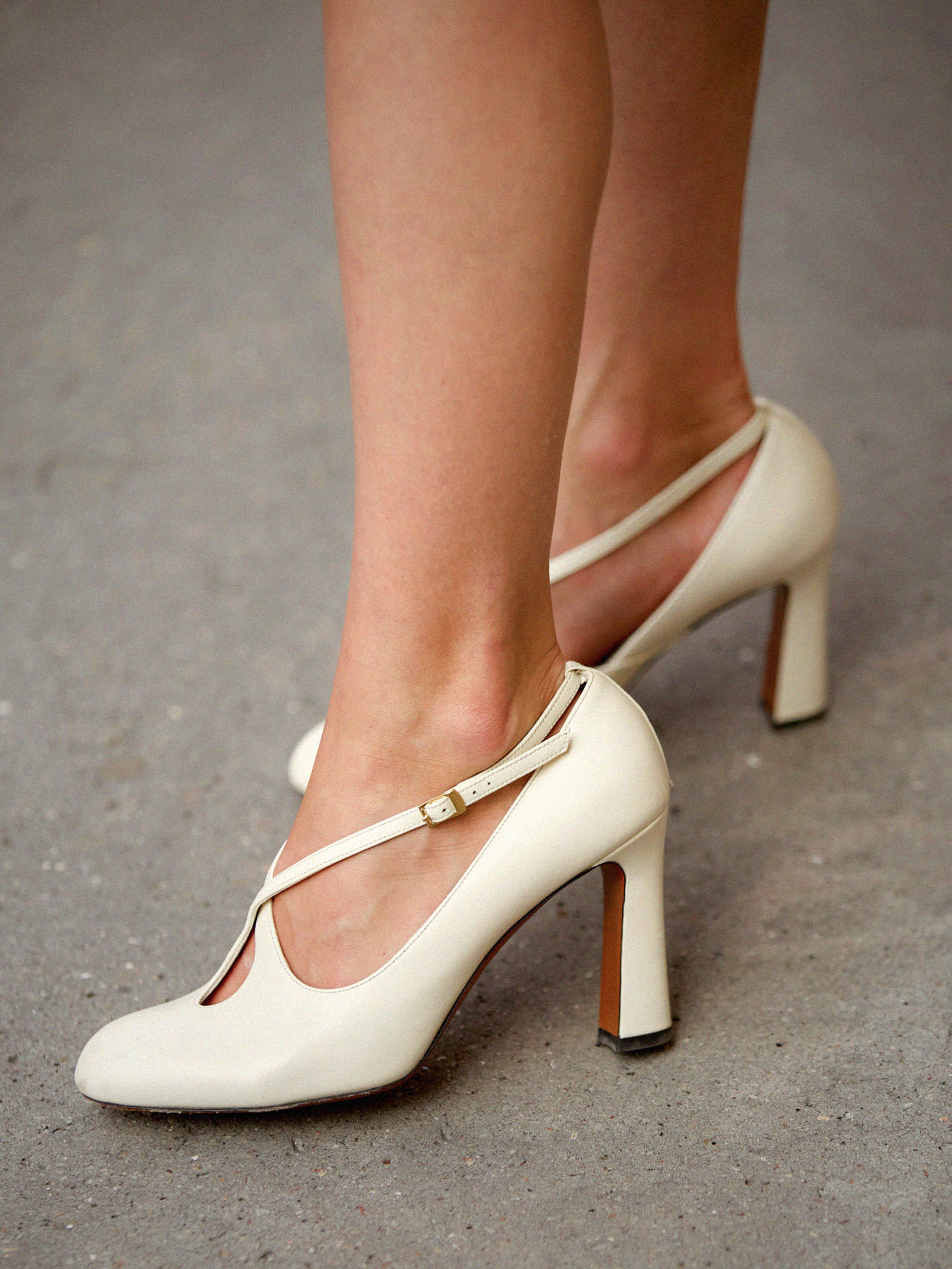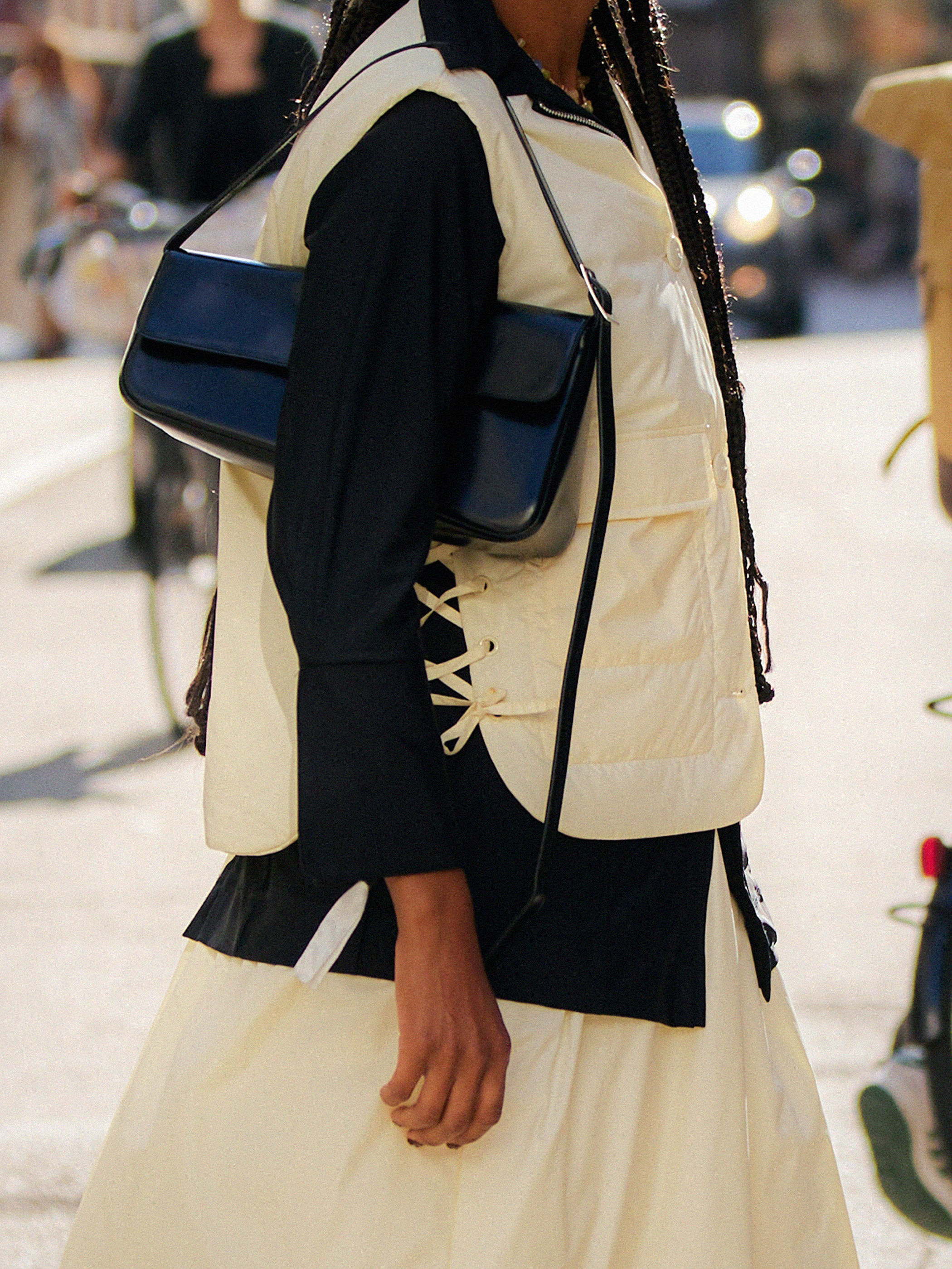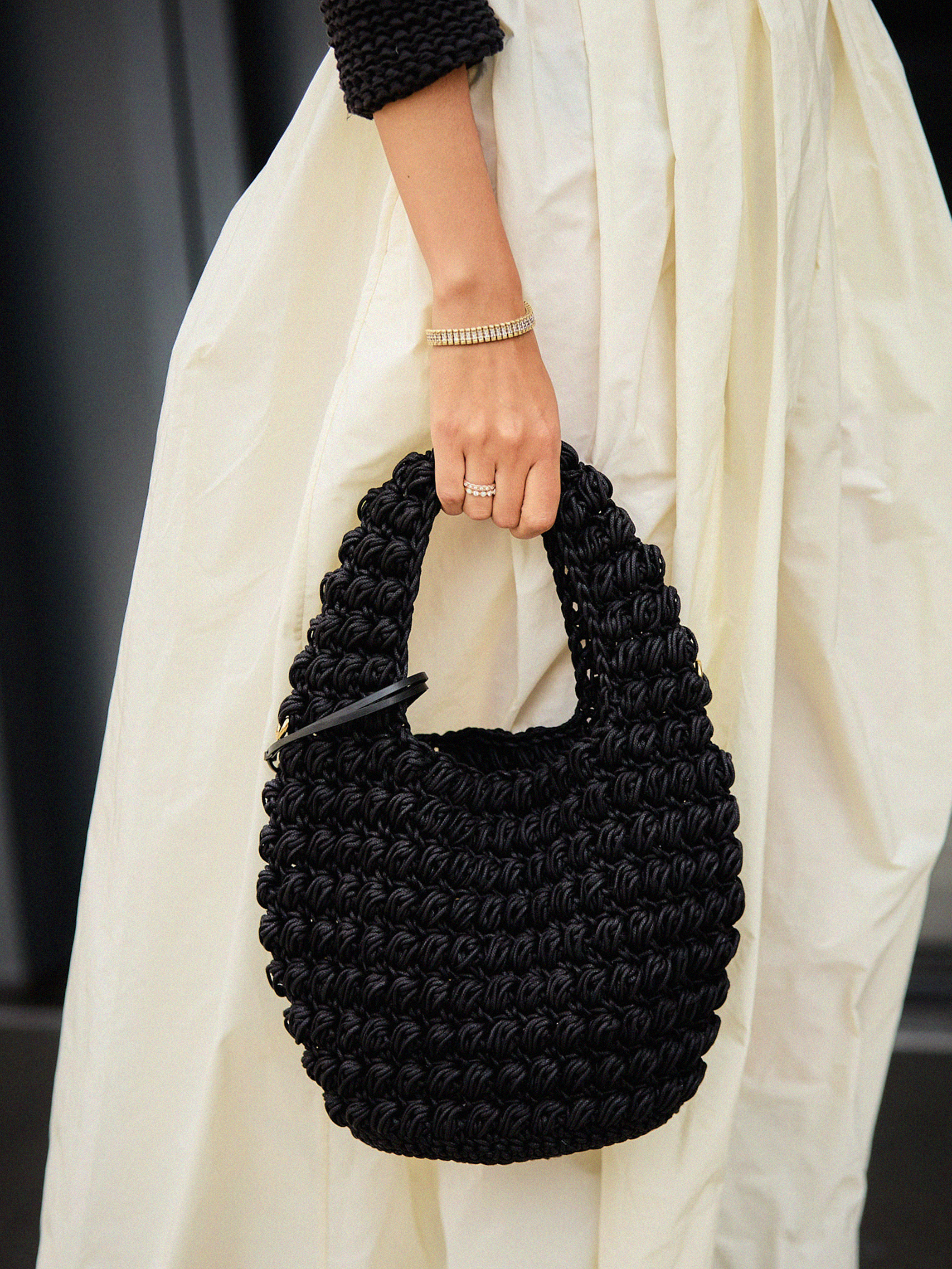How Trump’s Trade War Is Affecting 6 High-Street Fashion Brands
On Friday, the president ended a loophole that had allowed affordable products from China to remain exempt from tariffs.

Implemented by President Trump just two months ago, hiked-up tariffs have forced a fundamental shift both for the global economy and for American foreign relations. A cornerstone of Trump's campaign, the new tariffs require countries like Mexico, Canada, and China to pay anywhere from 10 percent to 145 percent on goods imported into the United States.
There's a common misconception that these tariffs are a tax paid by countries. Rather, tariffs are billed directly to the companies selling those products. With Trump's signing of a new executive order on Friday, May 2, affordable brands shipping from China to the U.S. now face new penalties—and may need to increase their prices in response.
Until Friday, countries including China were using the “de minimis exemption," a provision introduced in 1938 designed to “facilitate trade by eliminating the administrative burden of collecting negligible duties on low-value goods at a high cost to the government.” In practice, this meant international brands were able to ship packages valued at $800 or less to the U.S. without being hit by tariffs.
However, Trump claims the loophole allowed for deceptive shipping practices on low-value shipments, hiding and importing illicit substances. Closing the loophole, Trump says, is “a critical step in countering the ongoing health emergency posed by the illicit flow of synthetic opioids into the U.S.”
According to trade experts, the elimination of the loophole will contribute to rising costs. The move may also introduce substantial shipping delays, as importers and U.S. Customs and Border Protection must now inspect millions of additional packages.
While smaller brands, specifically independent and women-led brands, are among the most deeply affected, no business that imports from China is immune to the rising costs. Ahead, how six brands that pride themselves on affordability are tackling the latest tariff measure.
Shein

E-commerce titan Shein—which is headquartered in Singapore but was founded in China—announced on April 25 plans to increase its prices to combat the effects of the tariffs. "Our commitment hasn't changed: great style, made accessible to all," Shein said in a statement posted to its Instagram story. "Some products may be priced differently than before, but the majority of our collections remain as affordable as ever."
Get exclusive access to fashion and beauty trends, hot-off-the-press celebrity news, and more.
At press time, hundreds of items were still available on Shein.com for under $5.
Amazon
On April 29, Punchbowl News reported that Amazon planned to showcase tariff transparency on some of its products. This would reveal “how much of an item’s cost is derived from tariffs—right next to the product’s total listed price.” On that same day, however, CNN Business reported that President Trump called Amazon founder Jeff Bezos, regarding these claims. Trump seemed pleased with the conversation, telling reporters that Bezos “solved the problem very quickly.“
Following Trump’s conversation with Bezos, an Amazon spokesperson told CNN that displaying tariff price comparisons “was never a consideration for the main Amazon site” or for Haul, Amazon’s spinoff website that sells products for $20 or less.
Temu

Temu, an e-commerce giant headquartered in Boston but owned by a Chinese holding company, released a statement similar to Shein’s on April 25. “Due to recent changes in global trade rules and tariffs, our operating expenses have gone up. To keep offering the products you love without compromising on quality, we will be making price adjustments starting April 25, 2025," it noted.
But on May 5, CBS News reported that Temu had “overhauled its business model by halting shipments of Chinese-made goods to customers in the U.S.” The brand has stopped shipments of China-produced goods to the U.S. and is instead focusing on finding local fulfillment models and local U.S. sellers (which the brand is actively recruiting) to avoid tariff taxation. This change is a direct result of consumer complaints following the steep increase in price (some double the value of the item) on Temu’s site.
The brand also added a “Local Warehouse” label to its site. Items under this label will accrue no import charges and no extra charges upon delivery because these items are “shipped within your country or region” and do not result in import taxes or custom fees. In other words, the brand is “blocking” products shipped from China, narrowing down the items U.S. consumers can shop.
Zara
Zara, a Spanish-owned subsidiary of Industria de Diseno Textil SA (Inditex), has had little to say regarding tariff price increases at this time.
During Inditex’s annual press conference, Zara CEO Garcia Marceiras, stated he was not worried about the effects of the tariffs on U.S. sales. He noted that “the Americas as a whole accounted for a smaller share of global sales in 2024, at 18.6 percent, while its share of sales in Spain increased to 15.1 percent and the rest of Europe increased to 50.6 percent.”
Maceiras mentioned that Inditex has product supplies in 50 countries, allowing the brand to adapt to the new tariffs and keep prices stable.
AliExpress
AliExpress, owned by the Chinese conglomerate The Alibaba Group, is probably most clearly subject to Chinese tariffs, writes Mark Hachman of PCWorld. Despite its obvious hurdles, Vivian Wang—a China correspondent for The New York Times who went to Hangzhou, China for the Alibaba conference—notes that the brand seems “concerned but undeterred.”
According to Wang’s article, Alibaba employees “reassured attendees that they would help them take care of customs procedures” and that the focus in Hangzhou is currently on helping companies pivot to markets outside the U.S. through legal paper work. This could result in a slimmer selection of goods available in the U.S. from AliExpress, should sellers choose to focus their businesses on areas unaffected by these tariffs, like South East Asia and Europe.
H&M

H&M, one of the biggest clothing companies in the world, has its largest manufacturing hubs in China and Bangladesh, two countries majorly affected by Trump’s tariff plans. Unlike Zara, the U.S. is H&M’s second biggest sales market, so the company is anticipating having to hike prices in the future.
H&M CEO Daniel Ever told Reuters: "We feel at the end of the day, it will come at the cost of the consumer. We are firm believers in global trade on fair and equal terms, and tariffs are not supporting global trade and global trade development."
To prepare for the tariffs, Evers said the brand has been monitoring the market and shifting production to areas that are less affected by the tariffs—but still maintain the same production quality—when possible.
Marie Claire is committed to celebrating the richness and scope of women's lives. We're known for our award-winning features, thoughtful essays and op-eds, deep commitment to sustainable fashion, and buzzy interviews and reviews. Reaching millions of women every month, MarieClaire.com is an internationally-recognized destination for celebrity news, fashion trends, beauty recommendations, and renowned investigative packages.